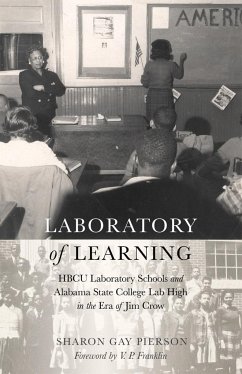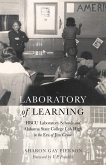During the progressive education movement, laboratory high schools evolved from model schools that were part of the core teacher training curriculum at historically Black colleges and universities (HBCUs). These laboratory schools were at the vanguard of the accreditation battle, participated in national curriculum studies, and boasted high graduation and college entrance rates. Led by well-educated, reform-minded African Americans who molded their own approaches to teaching and curriculum and were grounded in sound progressive educational theory, these HBCU lab high schools represented privileged educational experiences. Yet, this collective effort of high-achieving Black lab schools has been overlooked by historians. Through an examination of Alabama State Teachers College Laboratory High School (1920-1960), Laboratory of Learning illuminates the strategies, challenges, and successes of providing secondary education to Southern Black citizens during the Jim Crow era and provides evidence that HBCU laboratory schools and Lab High should be added to our histories as an example of distinctive, progressive schooling.
Bitte wählen Sie Ihr Anliegen aus.
Rechnungen
Retourenschein anfordern
Bestellstatus
Storno








